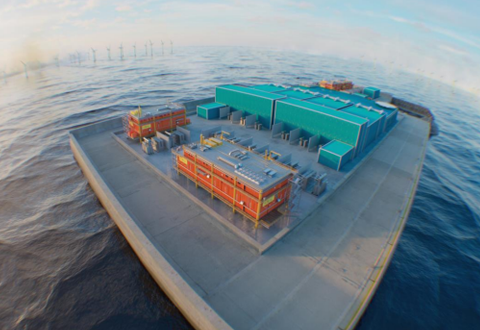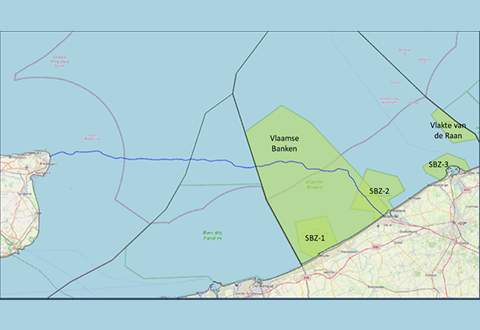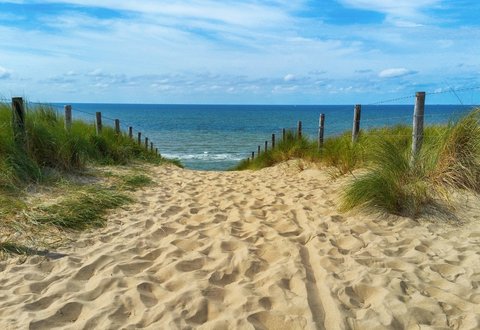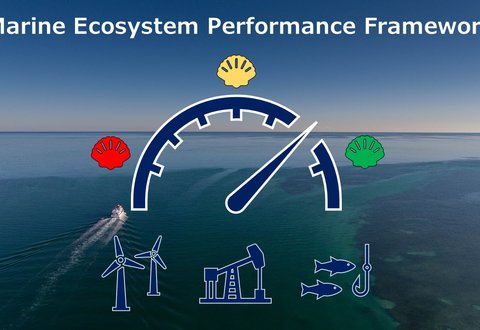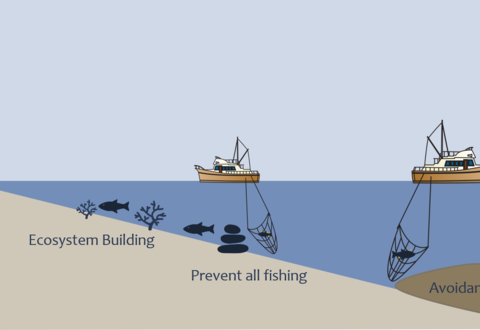
Hydro-Environmental Services
Environmental protection is widely recognized as an essential component of any water-related construction project, ensuring that development is carried out responsibly and sustainably. At IMDC, this commitment has long been embedded in our approach. We actively support our clients by integrating environmental considerations into every stage of project planning and execution. By promoting sustainable design, minimizing ecological impacts, and encouraging best practices, we help deliver projects that balance technical performance with environmental protection. Our ongoing dedication reflects the increasing global awareness of the importance of safeguarding natural resources while achieving successful and resilient project outcomes.
We provide strategic planning, risk evaluation, and policy support to advance sustainable coastal and marine development. Our multidisciplinary team—including ecologists, biologists, oceanographers, geologists, and economists—offers robust scientific analysis, practical operational assistance, and innovative tools that help guide environmentally responsible project decisions.
This expertise allows the Hydro-Environmental Services team to offer a complete range of services:
- Environmental impact assessments (EIA) and permitting
- Nature based Solutions and Nature inclusive design
- Ecosystem Services and Sustainability Tools
- Environmental sediment management and Policy Studies
- Environmental monitoring and modelling


1. Environmental impact assessments (EIA) and permitting.
Preparing an Environmental Impact Assessment (EIA) and Appropriate Assessment (AA) is essential for obtaining environmental permits for offshore work. IMDC evaluates impacts for dredging, coastal development, aquaculture, blue energy and marine infrvastructure projects using in-house tools such as turbidity, noise and water-quality modelling, CO₂ life-cycle analyses and targeted monitoring campaigns. Based on these assessments, IMDC proposes mitigation measures and nature inclusive solutions to keep impacts at acceptable levels. The team has strong expertise in environmental legislation and permitting procedures in Belgium and the Netherlands, as well as in the TEN-E Regulation, ensuring Projects of Common Interest (PCI) follow the required process. For more information click here.

2. Nature based Solutions and Nature inclusive design.
At IMDC we have acquired valuable experience in the design and implementation of nature-based engineering solutions for the management of rivers, estuaries and coastal waterfronts throughout several projects around the world. IMDC can perform and develop:
- Ecosystem, hazard and risk assessments, and mapping;
- Numerical modelling to assess performance of nature-based or hybrid solutions;
- Risk and benefit assessment of a wide-range of adaptation options;
- Nature-based risk management strategy;
- Design and implementation planning for suitable nature-based or hybrid solutions.
For more information click here.

3. Ecosystem Services and Sustainability Tools.
Ecosystem services are the benefits humans receive from nature. Ecosystem services studies provide an objective view of costs, benefits and co-benefits, help internalise externalities, and support systems thinking. IMDC applies a range of assessment methods depending on project goals, data and budget, using qualitative scoring, quantitative data or modelling, and monetary valuation techniques. When combined with an EIA, these studies capture both positive and negative environmental impacts.
Carbon-related services are an essential part of this work, including climate adaptation, mitigation, and blue carbon. IMDC also investigates GHG emissions from dredging and develops zero-carbon and carbon-related solutions for clients.
For more information click here.

4. Environmental sediment management and Policy Studies.
IMDC supports sustainable dredging through advanced sediment measurements, numerical modelling, and remote sensing. In collaboration with VITO-TAP, we produce sediment maps to monitor turbidity, salinity intrusion, and other key indicators. We also provide on-site environmental support using a range of assessment methods—qualitative scoring, quantitative analyses, modelling, or valuation techniques—tailored to project goals, data availability, and budget. IMDC offers environmental and technical guidance to help governments and institutions balance human activities with marine ecosystem protection. This includes integrating ecosystem services into national policies, developing seascape-level management strategies, and designing prevention and monitoring frameworks for seabed and coastal impacts. For more information click here.

5. Environmental monitoring and modelling.
Environmental monitoring is essential to understand marine and estuarine ecosystems. IMDC supports clients with baseline studies and data collection for EIAs or due-diligence assessments, specialised in tailor-made measurement campaigns for complex hydrodynamic, sediment impact assessment.
IMDC’s environmental modelling provides insights into how physical processes shape marine ecosystems. Our models simulate water quality, dredging plumes, plastic transport, eutrophication, and climate impacts. The water-quality model integrates nutrients, plankton, oxygen, sediment, and detritus to assess coastal and harbour conditions under current and future pressures.
Our advanced marine plastics model tracks (semi-) submerged plastics, considering tides, wind, biofouling, density stratification, and the Coriolis force, enabling accurate predictions for sustainable marine management and decision-making.

